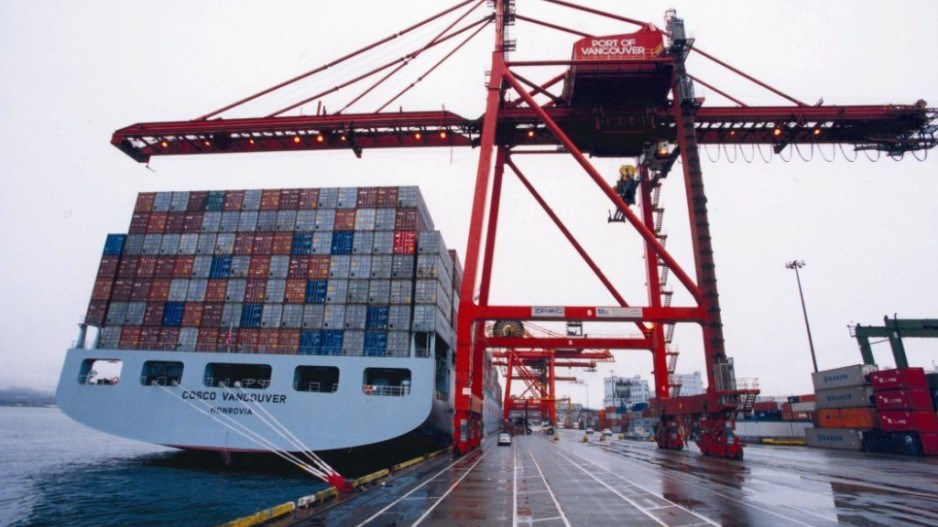Lower Mainland truckers say they will go on strike if problems with long wait times at port terminals aren’t resolved.
“All these truckers, they are at the point where they can’t afford to run anymore because they are running out of resources,” Harman Shergill, a member of the United Truckers Association (UTA), told Business in Vancouver.
“This port congestion is really affecting every trucker and their livelihood.”
Truckers rallied in Surrey and at Port Metro’s downtown Vancouver offices on October 24. Yesterday, the UTA met with Port Metro and with Terminal Systems Inc. (TSI), the company that runs the Vanterm (Vancouver) and Deltaport terminals.
Shergill said that while there was a good discussion at that meeting, the option to strike is still on the table. The UTA will be meeting with its lawyers in the next few days.
Port Metro Vancouver will be putting a GPS system in place to keep track of how long the trucks are taking to enter, load up and leave the terminals, said Chris Wellstood, acting director of operations and security for Port Metro.
Several construction projects are also planned to deal with conflicts between rail and trucks. A $75 million overpass being constructed at the foot of Powell Street will take trucks over the rails and into the terminal. A similar project is being planned for Deltaport.
But those solutions won’t solve the real problem, Shergill said.
“No one understands there is a problem inside the port,” he said. “[The longshoremen] slow down the whole operation, which cause the drivers a long time at the port.”
Relations between the truckers and the longshoremen have gotten so bad, there’s now an environment of “harassment” at many port facilities, said Gagan Singh, another member of the UTA.
“You can sit on any truck and see the trouble a truck owner is facing,” said Singh.
Shergill said the problem may be that terminal operators, like TSI, need to increase the number of longshoremen working, especially during busy periods.
“They slowed down the services yesterday and I am getting calls from drivers, they want to shut it down,” he said.
UTA has not yet spoken to the International Longshore and Warehouse Union, which represents Vancouver-area longshoremen, about the problems, said Shergill.
Wellstood said the truckers spoke to him about their concerns with the working environment inside the terminals, and that Port Metro plans to work with TSI to improve the situation.
Wellstood noted that right now is a particularly busy time at the port, which has likely contributed to the increase in tensions.
“We handle about $500 million of cargo each day, and we move about half of that by truck,” he said. “We’re currently in a peak season for the port. All the Christmas presents are coming into town … and we’re seeing exceptionally high grain volumes.”
The truckers last went on strike for one month in 2005. That labour disruption cost the B.C. economy around $75 million a day.




